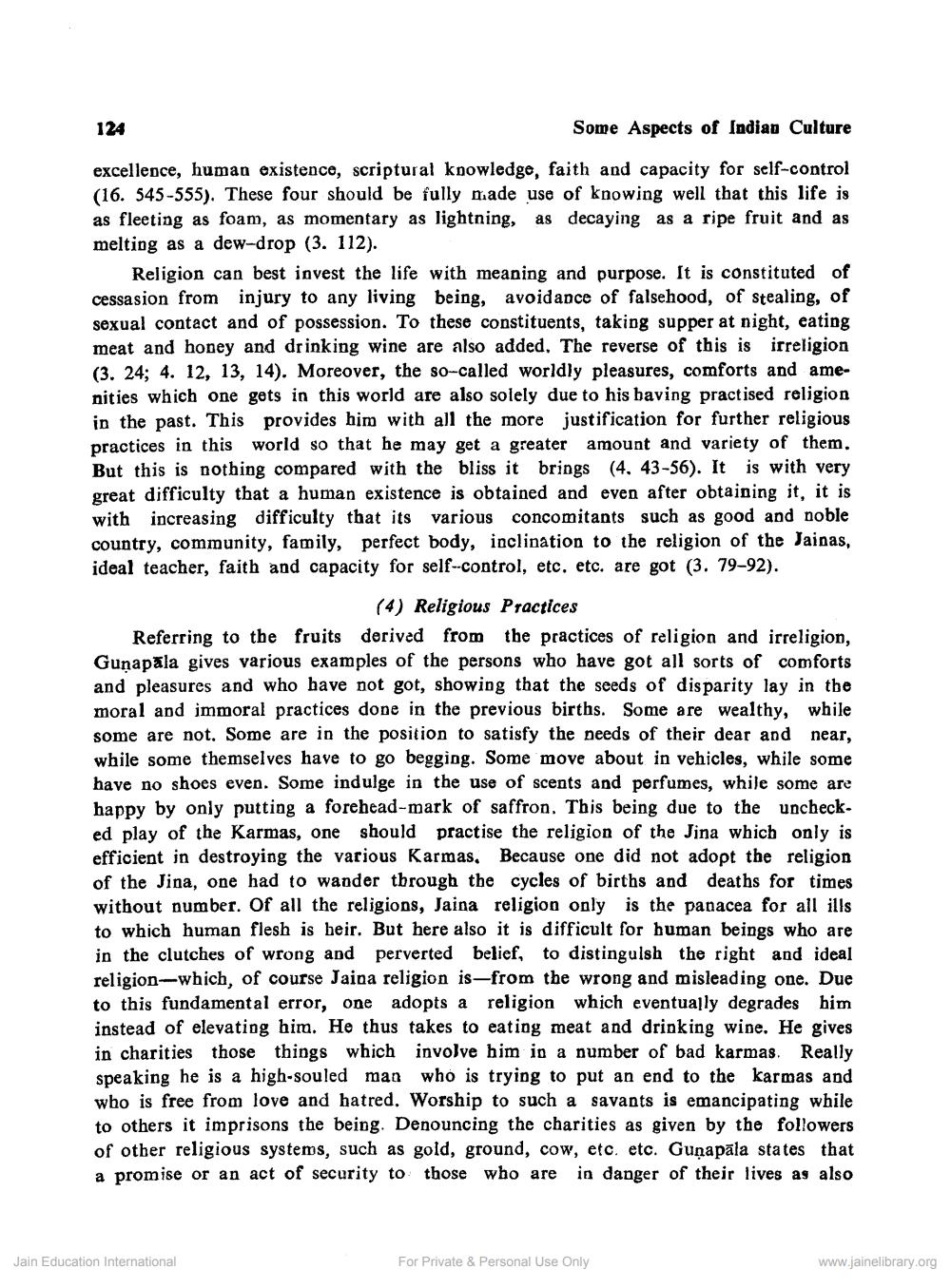________________
124
Some Aspects of Indian Culture
excellence, human existence, scriptural knowledge, faith and capacity for self-control (16. 545-555). These four should be fully riade use of knowing well that this life is as fleeting as foam, as momentary as lightning, as decaying as a ripe fruit and as melting as a dew-drop (3. 112).
Religion can best invest the life with meaning and purpose. It is constituted of cessasion from injury to any living being, avoidance of falsehood, of stealing, of sexual contact and of possession. To these constituents, taking supper at night, eating meat and honey and drinking wine are also added. The reverse of this is irreligion (3. 24; 4. 12, 13, 14). Moreover, the so-called worldly pleasures, comforts and amenities which one gets in this world are also solely due to his having practised religion in the past. This provides him with all the more justification for further religious practices in this world so that he may get a greater amount and variety of them. But this is nothing compared with the bliss it brings (4. 43-56). It is with very great difficulty that a human existence is obtained and even after obtaining it, it is with increasing difficulty that its various concomitants such as good and noble country, community, family, perfect body, inclination to the religion of the Jainas, ideal teacher, faith and capacity for self-control, etc. etc. are got (3. 79-92).
(4) Religious Practices Referring to the fruits derived from the practices of religion and irreligion, Gunapala gives various examples of the persons who have got all sorts of comforts and pleasures and who have not got, showing that the seeds of disparity lay in the moral and immoral practices done in the previous births. Some are wealthy, while some are not. Some are in the position to satisfy the needs of their dear and near, while some themselves have to go begging. Some move about in vehicles, while some have no shoes even. Some indulge in the use of scents and perfumes, while some are happy by only putting a forehead-mark of saffron. This being due to the unchecked play of the Karmas, one should practise the religion of the Jina which only is efficient in destroying the various Karmas. Because one did not adopt the religion of the Jina, one had to wander through the cycles of births and deaths for times without number. Of all the religions, Jaina religion only is the panacea for all ills to which human flesh is beir. But here also it is difficult for human beings who are in the clutches of wrong and perverted belief, to distingulsh the right and ideal religion-which, of course Jaina religion is-from the wrong and misleading one. Due to this fundamental error, one adopts a religion which eventually degrades him instead of elevating him. He thus takes to eating meat and drinking wine. He gives in charities those things which involve him in a number of bad karmas. Really speaking he is a high-souled man who is trying to put an end to the karmas and who is free from love and hatred. Worship to such a savants is emancipating while to others it imprisons the being. Denouncing the charities as given by the followers of other religious systems, such as gold, ground, cow, etc. etc. Guņapala states that a promise or an act of security to those who are in danger of their lives as also
Jain Education International
For Private & Personal Use Only
www.jainelibrary.org




